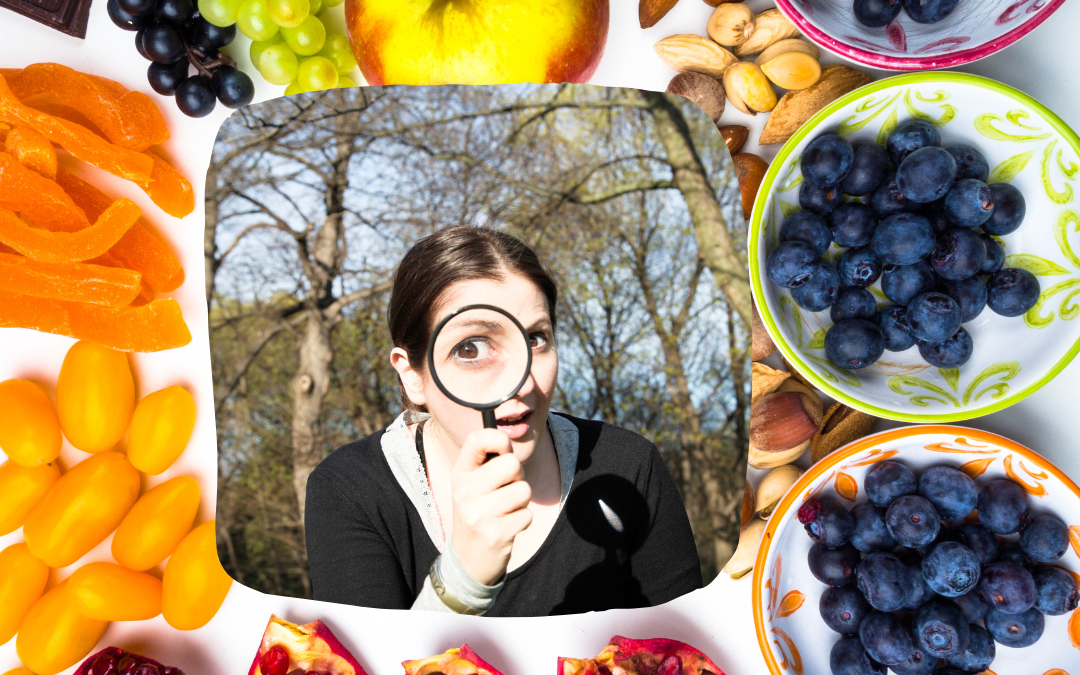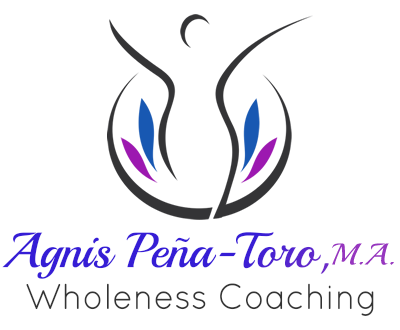
Could eating too healthy be a problem? What’s Orthorexia?
What’s orthorexia? Let me ask you some questions before I define orthorexia for you. Did you ever imagine that trying to eat healthy ALL THE TIME could be a problem? Is it possible to care TOO much about the quality of the foods you eat?
If you believe that eating healthy ALL THE TIME is beneficial for your health and your overall well-being or if you worry that you’re NOT eating healthy all the time and that that should be your goal, please keep reading. I have some surprises for you!
In this post I’ll define the term orthorexia and provide some examples of ways in which orthorexia can negatively impact your life. I’ll also suggest several practical ways in which you can care about what you eat (without becoming obsessive) while also giving equal importance to other areas of your life.
What’s orthorexia?
Orthorexia is a term used to describe a way of eating in which individuals are so concerned about eating healthy foods and being healthy that they become obsessed with ONLY eating locally produced, organic, fresh, non-frozen, non-GMO, pesticides and hormones-free foods.
This is not to say that there is anything wrong with eating organic, non-gmo and non-processed foods. Not at all. It’s more about the positive moral meaning given to “clean” foods and bad moral meaning given to the rest of foods.
Judging oneself badly if one doesn’t follow the orthorexia rules, and feeling fear about hurting one’s own health if we eat processed foods could be more harmful than eating processed foods. The only ones who benefit from us giving moral meaning to foods are multi-millionaire corporations.

Orthorexia Rules
– Eat only clean, pure, fresh, organic foods
– Only eat non-gmo foods
– Always eat in the right way (clean and healthy foods)
– Cut down the numbers of foods you eat until eating only healthy ones
– There is no room for seldomly eating processed foods
– Eat better than others
– Feel better than others by eating “right” always
– Rigidity over flexibility
– Flexibility is associated to weakness or lack of willpower

Impact of Orthorexia
Emotional:
– Interferes with the quality of your life as you have to reject social events where “clean or healthy” foods won’t be served
– You may start to socially isolate as friends and family members may not share your “healthy and clean” rules
Physical:
– The fixation on eating in the “right” way can lead to neglecting important nutrients in your diet. For example, believing that eating “right” means not eating carbs at all or very little could lead to missing nutrients important for your hormonal balance (especially in women) and other physical issues and even mood related issues
– Limited consumption of a variety of foods impacts nutrition. Some extreme clean eaters eat less than 8 types of foods during long periods of time
– Excessive intentional weight loss that usually leads to regaining extra weight in the future and imbalance in the body
Psychological:
– Increased anxiety, stress and preoccupation around food
– Negligence of other areas of life such as free and non-detailed planned outings with friends or family members
– Increased financial burden as eating organic “clean and healthy” could be expensive and another source of worry
– It could lead to a full-blown eating disorders as stated in the DSM-5
– It may lead to increased black or white thinking, perfectionism and obsessive thoughts.

Overall quality of life:
– Less money, time and energy for creativity and play
– Less enjoyment of life as relaxation and peace of mind could be limited by focusing life on (the right) food
– Taking life more seriously
– Taking life for granted and forgetting that life is short. No one will get a medal at their deathbed for being perfect “clean eaters.”
If you see yourself in the descriptions of orthorexia in this post, you’re not the only one. You’re not alone on this at all. Capitalism, the diet culture billionaire industry as well as the objectification of women’s bodies have contributed to it. I myself was a “clean and healthy” eating evangelist years ago even though I’m a therapist and coach. No one escapes from it. So no shame.
Flexible and balanced ways to choose your foods and eat
– Remind yourself that food doesn’t only have a nutritional function but also social, emotional and even spiritual.
– Foods aren’t only needed to fulfill nutrition goals but also to get together and closer to your friends, family and community, which positively impacts your health.
– Find pleasure and satisfaction in food, which can also contribute to health.
– Your body, nervous system and immune system are wise and intelligent. Trust them. They know what to do with the food you eat clean or not.
– Start trusting and reconnecting to your body. Cultivate body trust
– Your immune system doesn’t only rely on the foods you eat to keep you healthy but also on the relaxation state of your nervous system. Make your nervous system happy and relaxed. That’s healthy too!

Orthorexia is far from living a healthy life. Nothing in excess is good even when one is eating “good” foods. Having white or black thinking around “healthy” food choices can lead to serious issues with physical health (limited nutrients, hormonal imbalances), mental health (anxiety, worry, eating disorders), emotional health (social isolation or conflicted social interactions) and also financially.
If being happy and healthy is the main priority, then adopting more flexible, balanced and pro-social beliefs as well as more joyful-based ways of thinking about food and eating could be the most healthy ingredients to have choice, freedom and authentic health in our lives. This is whole health

Could you be eating too healthy?: What’s orthorexia? www.agnispenatoro.com
If you’d like to dive deep into authentic whole health and want to improve your relationship with food and your body, I’ll be happy to chat with you on a free discovery call. Book your call now
